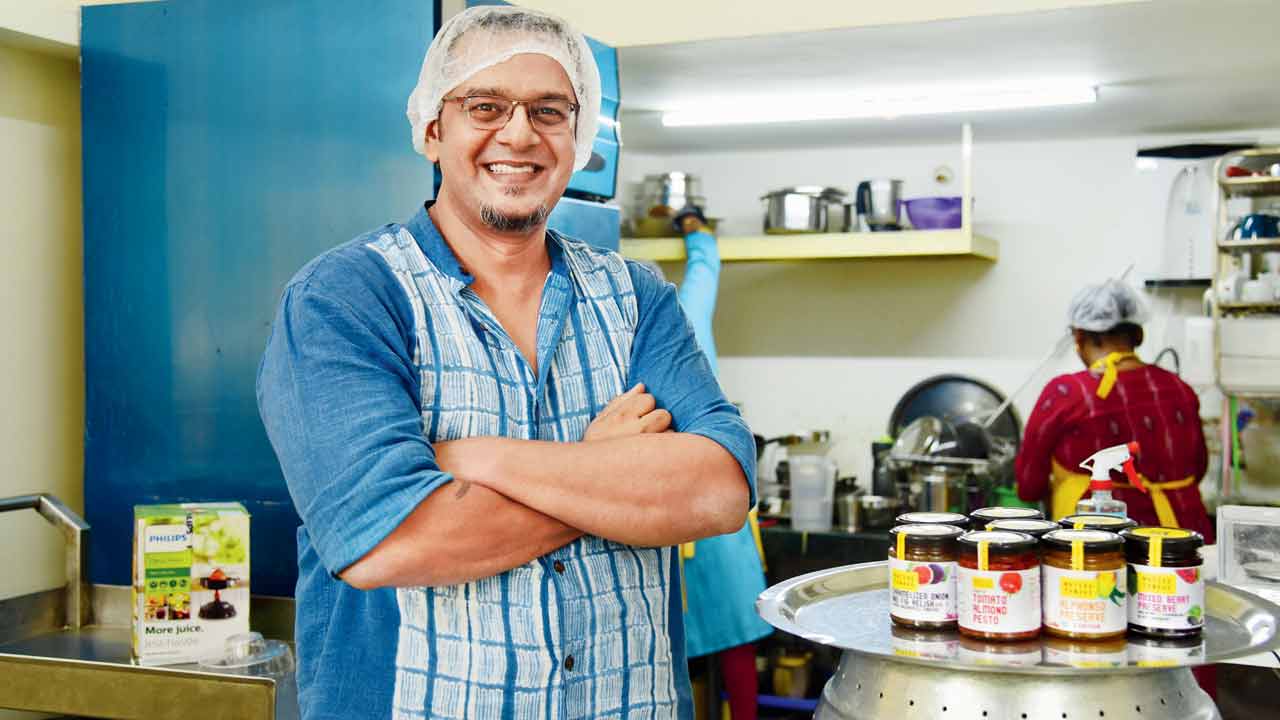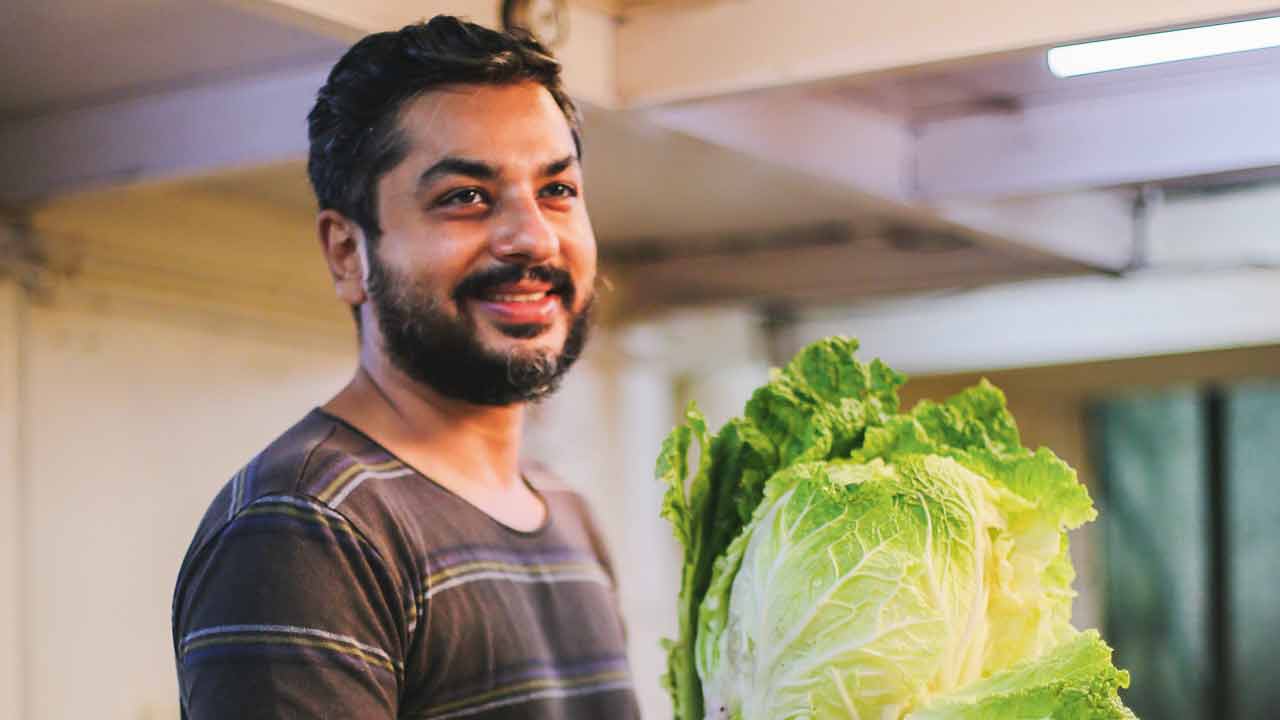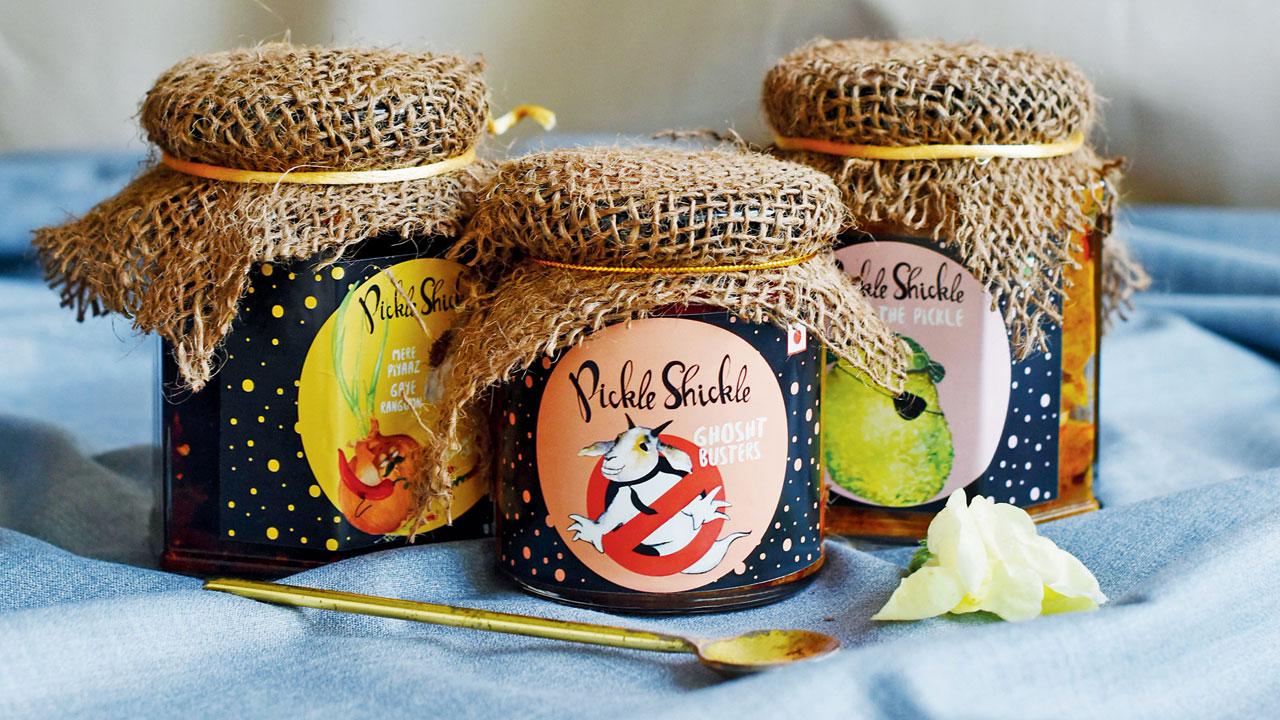Niche food businesses went long on a short list of curated products. A decade later, they reap the sweet success of delivering quality and keeping loyal consumers satisfied

Once self-taught, Eleftheria founder Mausam Narang went on to extensively train in cheesemaking
Caramel-like in taste, silken soft in texture—Eleftheria Cheese’s indulgent blocks of Brunost can change the very way in which one thinks of cheese. Far from being umami and sharp like Parmesan, it brings together the sweetness of toffee and the homeliness of fudge.
The multi-award-winning Norwegian offering comes from a nine-year-old brand founded by Mausam Narang—who quickly went from being a self-taught cheesemaker to an extensively trained one. Since their early days, Narang and the team behind Eleftheria knew that it was artisanal cheeses, like the stringy oaxaca from Mexico and the lush stracciatella, that would be their sole focus to address a gap in the Indian market.

Early on, the brand recognised gaps in the artisanal cheese market, pushing them to perfect their offerings
“Despite India being a leading producer of milk globally,” the Mumbai-based brand says, “the availability of homegrown artisanal cheeses was severely lacking. This gap presented a growing demand, especially in metropolitan areas, where consumers were increasingly seeking high-quality, locally produced cheeses.”
Thus began a journey in channelling agility and creativity to create and fine-tune products for the increasingly discerning taste of urban India, one that would seek out more nuanced and healthier alternatives to processed cheese. The destination is finding that what was once rare or unheard of is now a kitchen staple.
Eleftheria’s story, and that of its peers in the artisanal food segment, lies the story of an interplay between evolving consumer choices and brands committing to delivering on promises of quality and inventiveness. It is why many of us now head to the striking websites of small, niche businesses rather than loitering through the aisles of supermarkets as we did in the 2000s—in search of foreign, fancy jars and cans of sauces and spreads.
Consider the Pune-based Nomad Food Project, instantly recognisable since 2019 because of its green chilli bacon thecha, which adds a porky dimension to a beloved, piquant Maharashtrian relish. “We started as a brand focused on building around the idea of bacon, introducing it in an Indian context. We also went with just one kind of product because we figured we could make some noise with this specialisation and build a brand, using it as a market entry tool,” says co-founder Advaith Inamke.

Experimental brand Native Tongue’s Rohan Sonalkar says they are kept on their toes by knowing, aware consumers. PIC/NIMESH DAVE
At flea markets and farmers’ markets, Inamke and his co-founder Aditya Rai’s first interactions with buyers took place, Inamke recounts excitedly—where they experienced the beginning of what he calls ‘community emotion’. Buyers passionately responded with repeat orders and love and support for a brand with two faces they had come to recognise.
Over time, they learnt more about what their buyers needed, and expanded their line to include a strawberry preserve rounded off by the herby-boozy touch of gin and chicken chilli oil—a garnish that’ll uplift any bowl of instant ramen. Today, they ship jars of bacon thecha as far as Singapore, the US and Australia.
Thane-based Native Tongue, too, is in great demand overseas. “Unsurprisingly, about eight to 10 per cent of our audience are Indians settled in the US. The familiarity of flavours and the traditional method we use to make our products draws them to us,” says co-founder Rohan Sonalkar. Among the methods Sonalkar refers to is stone grinding, which enables the brand to create smooth nut butter—rich from the natural oils of ingredients such as cashews, which are paired with the festive flavours of thandai: Saffron, cardamom and fennel.

Good kimchis stink up rooms but pay off in terms in taste and quality, says Bombucha’s Nitin Gandhi
Native Tongue has aced its flavour experiments, resulting in jars packed with the most unexpected combinations. Tangy Kachampuli vinegar, essential to Coorgi cooking, cuts through the sweetness of figs and caramelised onions in a relish that can find a place in sandwiches and cheese boards. The nostalgic, rooted nature of their recipes goes hand in hand with pragmatic use by buyers. “Most of us are looking for quick hacks in the form of sandwich spreads, salad dressings, chapati fillers, or ingredients for swift cooking. We are filling that gap with all-natural Indian ingredients in the way our customers need them,” Sonalkar explains.
As a business that caters to a knowledgeable, aware consumer, Native Tongue is kept on its toes. “The boon of working with a limited set of high-quality products is that the audience either already knows what they are purchasing or is open to absorbing information about the product before buying it. The days of fooling the customer are long gone. They now knows the difference between a Gurbandi almond and a California almond or between a Kashmiri and a byadgi chilli,” he says.
His wife Ruchira, who started the brand in 2018, takes a sharpened knife to matters of quality, even discarding entire batches if they do not meet her standards of taste and texture. This aware consumer is also well-travelled and exposed to pop culture worldwide; the TV shows and movies whose re-runs they watch have an undeniable impact on their taste buds. Nitin Gandhi’s Bombucha serves the globalised, curious eater with an enviable list of offerings—from beverages like kefir and kombucha to superfoods and side dishes such as kimchi and sauerkraut. “A good kimchi will stink up the room; it will have a pungent smell,” Gandhi laughs.

Preetika and Prerna Chawla have carved out a niche for their brand in the crowded pickle market, through their choice of main ingredients and in relying on family recipes. Pic/Raghav Goswamy
Bombucha was born in 2016 out of Gandhi’s organic experimentations in beverages and eatables that would promote good gut health and general well-being. It spotlights fermentation through a purist approach like no other Indian brand does. “Fermented food is an acquired taste… But Indian taste buds have evolved spectacularly. And the impact has trickled into the boom of small businesses,” Gandhi explains.
In addition to opening themselves up to new experiences, Inamke says that consumers are drawn in by convenience, as grocery apps offer same-day delivery guarantees. This is quite unlike when people had to travel to speciality stores with their shopping lists, especially in Tier 2 cities. Sonalkar, on the other hand, says that people are now keenly reading what is written in fine print on the label at the back. “They want to know what they are consuming... After the COVID-19 pandemic, homemakers and officegoers alike practice caution, which is beginning to turn into an instinct. What we eat and drink has become the most important consideration,” he opines.
Aside from trends, metrics, and marketing tactics, the secret sauce sometimes lies in a homecoming. For example, sisters and actors Preetika and Prerna Chawla come from multi-cultural families. Their maternal roots are across Ireland-Scotland, Burma, Uttar Pradesh and Rajasthan. “There were always jams, relishes and pickles of all sorts from around the world that we ate growing up. Our father’s side of the family descended from Multan, near Lahore. Pickles were the shared dish to send to neighbours and friends when everyone was finding their feet post-Partition,” says Preetika, who co-founded Pickle Shickle in 2016 with Prerna.

From the get-go, the duo recognised that they should draw on their three-generation-old family recipes and present them in a contemporary manner. “We knew we wanted to introduce pickles, which were not inherently common in people’s homes. This is why some of these ingredients stood out, like jackfruit and lotus stem. Everything from chicken to pork, prawn, shrimp, mushroom and bacon—we took these ingredients and made them incredible,” Preetika adds.
Like many of the brands it rubs shoulders with, Pickle Shickle too measures its success in different ways—it is in buyers seeking out five bottles of their Burmese chilli oil weekly, in their products lining shelves and cabinets of actors and directors; and in orders from older folks who are keen to experiment. And what could be more celebratory than customers giving back to the brand in meaningful ways—in the spirit that food is meant to be shared? “They even share their own family pickle recipes with us and have stayed loyal to the brand,” Preetika says.
 Subscribe today by clicking the link and stay updated with the latest news!" Click here!
Subscribe today by clicking the link and stay updated with the latest news!" Click here!










